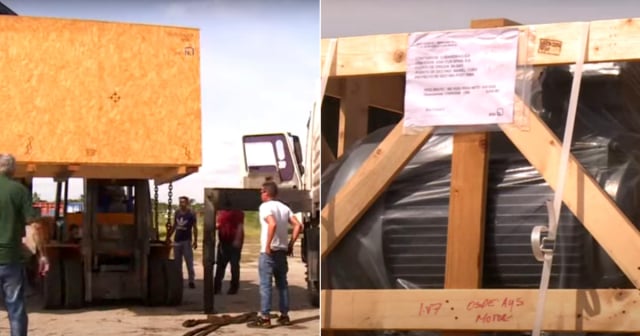The Ministry of Finance and Prices of Cuba announced this Thursday the implementation of Resolution 329, which exempts the importation of fertilizers, feed, veterinary medicines, and pesticides from tariffs.
The regulation was published in the Official Gazette of the Republic of Cuba, No. 112 (ordinary). Minister Vladimir Regueiro Ale stated that the objective of this measure is to stimulate national production, particularly of food, amid a context marked by a profound economic crisis.
It will be in effect until December 31, 2025, and is aimed at benefiting "economic actors who import goods for productive processes or to secure those productions."
Products exempt from tariffs until December 31, 2025.
Resolution 329 exempts the payment of customs duties on the importation of a wide range of essential inputs, aiming to reduce costs and stimulate production. Among the included products, the following stand out:
- Agricultural and food productsFertilizers, chemical fertilizers, seeds, cereals (wheat, corn, sorghum, oats, among others), flours, oils, and sugar-derived products.
- Veterinarians and pharmacistsMedications, vitamins, antibiotics, and diagnostic reagents.
- Industrial and agriculturalPaints, varnishes, pesticides, agricultural tools, steel and aluminum wires.
- Packaging and materialsPlastic bags, paper boxes, cardboard, and wood.
This regulation applies to all economic actors, eliminating prior permits and streamlining essential imports for agriculture and other sectors.
What does the Cuban government say about this measure?
The Cuban minister warned that this resolution is a "continuation" of previous policies and expands the benefits of Resolution 7, which reduced tariffs on supplies and raw materials by 50% earlier this year.
It aims to reduce costs for both state and private economic actors, improve final product prices, and increase market supply.
Resolution 329 removes the requirement to request permits from the Ministry of Finance and Prices, which is expected to streamline the import processes and provide quicker access to supplies within the country.
Regueiro Ale stated that the "fiscal sacrifice," meaning the money that the regime has not collected due to this "benefit for the private sector," amounts to approximately 25 million pesos up to the present.
He insisted that it has been Cuban entrepreneurs who have most frequently requested permission from the Ministry of Finance to import these types of products without taxes.
The regulation entails customs controls to ensure that imported products are used exclusively for the declared purposes.
In a system characterized by bureaucracy and corruption, it remains to be seen whether these measures will truly expedite processes or if they will introduce new layers of state control.
The removal of tariffs can reduce costs for producers, but Cuban agriculture faces deeper structural issues. Fuel shortages, lack of access to technology, and monetary duality are significant obstacles that these measures do not address.
The increasing dependence on non-state economic actors, as noted by Regueiro Ale, suggests an implicit acknowledgment of the state sector's inability to lead the country's productive recovery.
In July, the Cuban government announced the collection of tariffs and port services in foreign currency for the non-state sector.
Prime Minister Manuel Marrero Cruz warned that they would promote a package of economic measures, among which was the mention of allowing the use of cash in foreign currencies for tourism activities and other sectors, acknowledging shortcomings in the banking process.
The regime continues to rely on gradual adjustments, with measures that come and go, but without clear solutions for its structural problems.
Filed under:
